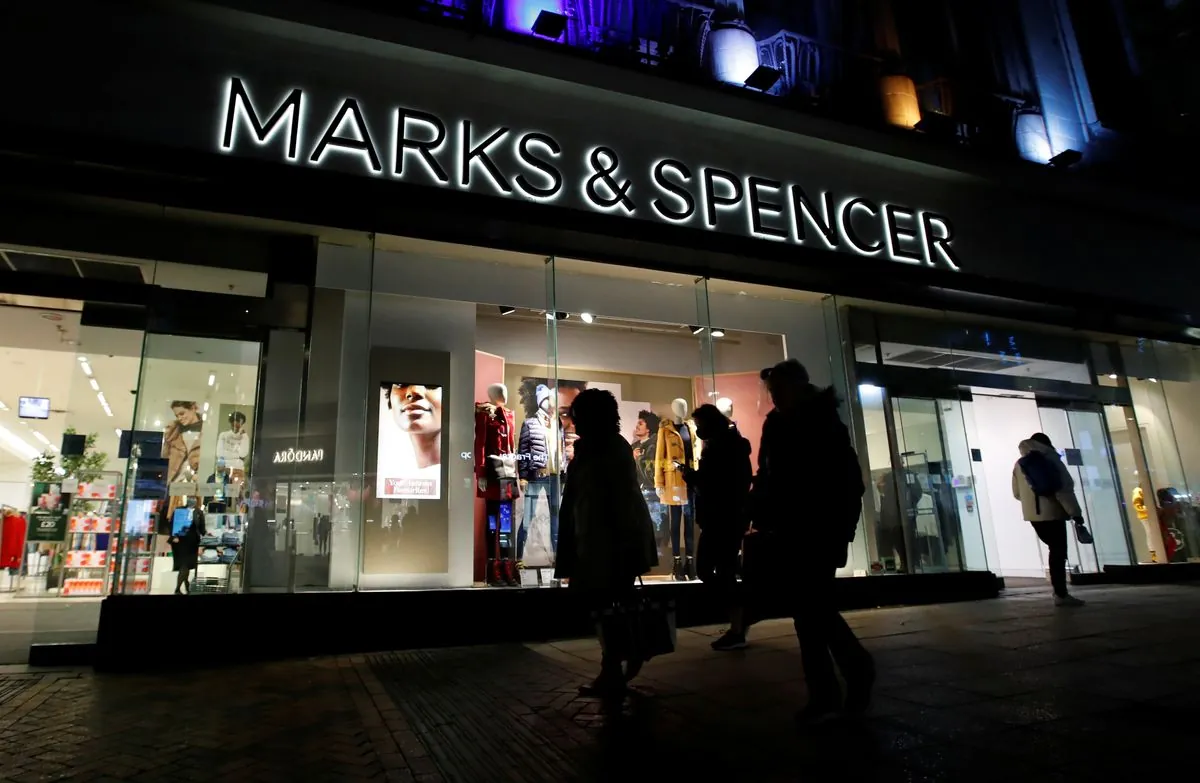M&S Shares: Still a Worthy Investment Despite Higher Valuation?
Marks & Spencer's stock has surged, but future growth potential remains. Low inflation, efficiency gains, and online expansion could drive further gains, despite a higher P/E ratio.

Marks & Spencer, the iconic British retailer, has seen its shares soar by 147% since May 2021, outperforming the FTSE 100 index by 132 percentage points. This impressive growth has led to a reassessment of the company's investment potential, as its price-to-earnings (P/E) ratio has climbed from 9.1 to 16.2 over the past three years.
Despite the higher valuation, several factors suggest that M&S shares may still offer attractive investment opportunities. The company is well-positioned to benefit from a potential era of low inflation, which could boost consumer purchasing power. As the cost of living crisis eases, shoppers may return to mid-tier retailers like M&S, prioritizing quality and service over price alone.
M&S's efficiency program has yielded significant results, with £180 million in structural cost savings generated in the 2024 financial year. The company has raised its five-year savings target from £400 million to £500 million, demonstrating a commitment to improving profitability. This focus on efficiency is complemented by a strengthening financial position, with the net debt-to-equity ratio decreasing from 96% to 75% year-over-year.

The retailer's joint venture with Ocado, while not as successful as initially anticipated, still offers long-term growth potential in the expanding online grocery sector. This aligns with M&S's history of innovation, as the company has been a pioneer in various retail aspects since its founding in 1884.
"Despite the higher P/E ratio, M&S's solid financial position, effective strategy, and improving operating environment suggest there is still room for further capital gains."
Looking ahead, M&S is forecast to deliver double-digit earnings growth in the next two financial years. This projection helps alleviate concerns about the current market valuation, with the P/E ratio expected to fall to around 13 based on financial year 2026 profit forecasts.
However, potential risks remain. Sticky inflation could delay interest rate cuts, and economic volatility may impact consumer behavior. Despite these challenges, M&S's long-term prospects appear fundamentally sound.
The company's rich history of innovation continues to drive its success. From introducing the "St Michael" brand in 1928 to launching the "Sparks" loyalty program in 2015, M&S has consistently adapted to changing consumer preferences. The retailer's commitment to sustainability, exemplified by its "Plan A" initiative launched in 2007, further enhances its appeal to environmentally conscious shoppers.
While future gains may not match the impressive returns of the past three years, M&S shares remain a worthwhile investment. The company's ability to navigate changing market conditions, coupled with its strong brand recognition and ongoing efficiency improvements, position it well for continued growth and potential outperformance of the FTSE 100 index.


































